Operators, Here’s How To Crush It at Work in This Tougher Climate
Everyone is being asked to do more with less. At June 12 during Operator Day, Primary shared guidance on standing out and getting ahead in this market.
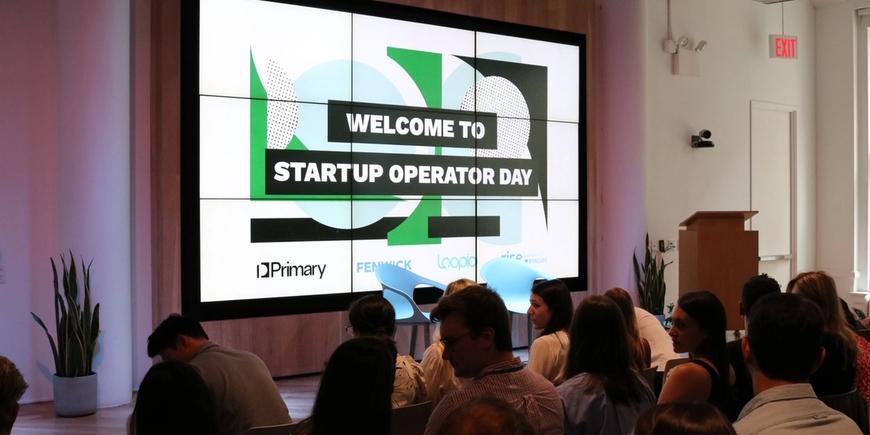
On June 12, Primary gathered 150 startup operators for a full day of programming on finding your edge.
This packed day featured our Impact Leadership team sharing practical advice for maximizing efficiency, tactics operators can take back to their startup, considerations for evaluating today's changing startup and job market, and our Investment Team highlighting the funding trends across industries.
Here are some key takeaways.
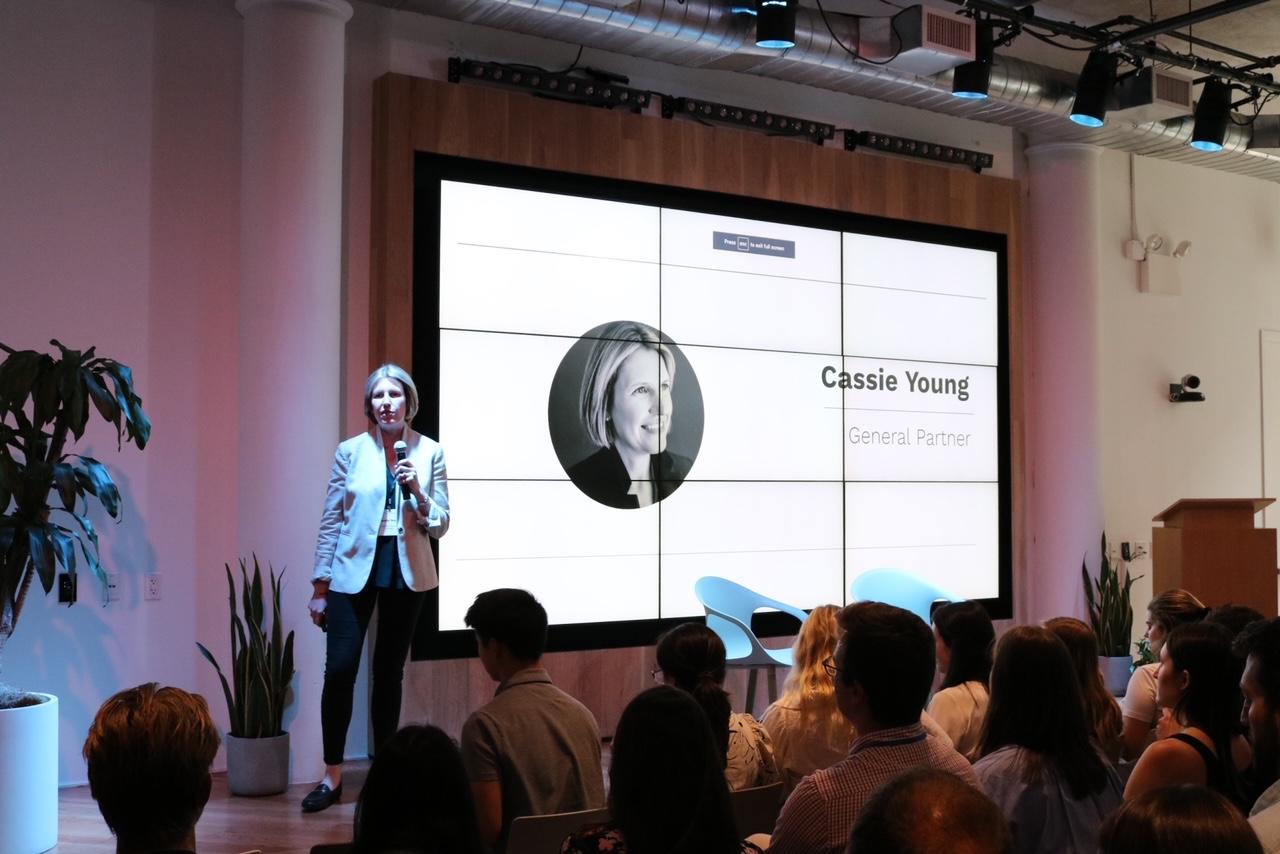
Cassie Young on the Changing Macro Landscape
Oh what a difference a year makes…In 2022, Primary’s General Partner Cassie Young was still touting Battery’s “T2D3” model from 2015 (how breakout startups triple in the first two years and double in the next three that follow). Now, as many companies see slower growth than anticipated, Rule of 40, a growth versus profitability tradeoff metric, is the talk of the town. And regardless of whether a business’ primary focus is growing or earning though, every company is turning its eyes toward efficiency metrics such as ARR per employee or burn multiple.
Cassie asserts, "What you need to remember from today is that all companies are going to be forced to prove a path to profitability wildly earlier than ever before." A common theme for operators this year, Cassie emphasizes, is that “every business and every single person in those businesses has to become more focused and more efficient."
“For any company to run effectively, it has to balance the needs of the company itself, its customers, and its employees.” Cassie explains that, “in times of market contraction, this intersection - which is small even during boom times - becomes even further compressed.” As a result, management teams often face difficult choices, such as workforce reduction, to preserve enterprise value. And employees can’t take that personally.
Weathering the storm isn’t easy. However, Cassie encourages the audience, "I implore you all, within reason... to ride out the [company] lows because they're amazing opportunities to lean in and learn." Cassie reminds the audience that operators at other startups who boast about their companies' lack of challenges are probably just so far removed from the leadership team’s nucleus that they’re totally unaware of what challenges and decisions are being considered. More than anything, Cassie’s message was to hang in there. “Periods of market contraction offer learning opportunities and provide great potential for building companies and identifying new career opportunities.”
Lisa Lewin on Three Causes of Business Strategy Death
Lisa Lewin, CEO-in-Residence at Primary, kicks off the Tactical Talks by discussing the challenges companies face in bridging the gap between strategy and execution. She identifies that the “lack of strategic clarity, organizational alignment, and operational focus as the three leading causes of business strategy death.” To overcome these challenges, she provides tips for ensuring success, including creating a digestible one-sheet of the strategy that resonates with the team. Especially since “Almost nine in ten employees on average are not aware, do not understand, and cannot articulate the core pillars of their business strategy." By addressing these challenges, companies can improve their chances of successfully executing their strategies and achieving their goals.
Lewin encourages leaders to identify and address non-strategic elements within their organizations, even if they generate some value. These non-strategic elements, or "circus animals," can divert resources and attention away from the strategic goals. It is essential for leadership teams to honestly assess and eliminate such elements to maintain focus and drive success.
Brian Gwiazdowski on Cutting Burn and Collaborating with Finance
Brian Gwiazdowski, Primary's VP of Portfolio Strategic Finance, addresses the room with the current status of the market – "Valuations for high-growth businesses are down, funding for startups has slowed dramatically, and as a result, startups have been forced to cut burn."
“Investors are looking for solid unit economics, efficient growth, and in some cases, just trying to keep the business alive." Brian acknowledged that to significantly cut burn, you’ll have to go through a RIF – and “it gets painful.”
He lists a few best practices when working with Finance, including "bring data to demonstrate a strong ROI”. He urges functional leaders to "rank investments in order of perceived ROI and maintain a list of the last dollars into their budget and the first dollars out." Pairing this with a qualitative list of risks and opportunities will help teams build the overall narrative. At the end of the day, Brian concludes, “allocating resources efficiently is everyone’s job.”
Cassie Young and Bridget Shea on the Efficiency Edge for Customer Support
Cassie was joined by her long-time industry friend, Bridget Shea, Chief Customer Officer at Dataiku. They set the tone immediately by telling the audience, “We're going to give you permission to give your customers the “Heisman.” We’ll show you how to push them away."
Cassie and Bridget outlined their presentation with a framework around three aspects: people, product, and profit, which deviates from the traditional people, product, and process. A few highlights:
- Ensure the right people working on the right tasks. Conduct a simple time audit to identify areas where resources could be misallocated (e.g Customer Success Managers (CSM) are spending their time on troubleshooting/support tasks even though CSMs cost 30% more than support agents).
- Employ “CS at scale” or product-led growth (PLG) approaches now and always. Obsess over ticket deflection by analyzing support ticket trends and using them to influence the product roadmap. Consider tactics such as personalized product tours and triggered emails to help you scale customer communications.
- Consider growth potential in addition to a customer’s current profitability profile. Rather than relying purely on profitability to drive account segmentation, delineate between "fast-trackers" and "flatliners" to understand customers’ growth potential. Invest in your fast-trackers, even if that means giving away some free professional services to help “tip” them.
Rebecca Price’s Talent Panel
Rebecca, Partner at Primary, invited a few standouts from Primary's network to join her onstage for a conversation about how the talent market has changed and what Operators can do to set themselves up for success.
Rosa, Head of Talent Acquisition at Chief on the pressure to find the right hire
There’s a lot of pressure to find the right person among the overwhelming number of applicants and to also ensure that every candidate receives the attention they deserve. It’s more important than ever to “assess candidates fairly, equitably, and ultimately, focusing on finding the best talent for the company.”
Peter Oh, VP of People and Talent at Merge on positioning yourself during an interview post RIF
"Lead with transparency... show an understanding of why your role might have been eliminated, that you understand the connection to the business and the business need." Peter reminds candidates to, “communicate their self-awareness and business comprehension to hiring managers.”
Jamie Sterrett, VP of Talent at Primary on redefining and adapting roles to match the changing market
As the market has changed from prior years, what was important to hire for then might no longer be important now. It’s crucial for hiring managers to reevaluate priorities and adapt their key hires to reflect the company strategy.
Addressing the candidates in the room, the panelists shared that "salaries aren't dropping at a significant rate, but they are staying stagnant, which is helpful." However, they noted, "if you're expecting this market to be similar to 18 months ago, 24 months ago, there's a bit of level setting to be done."
Jason Gelman on Working for a Startup
Jason Gelman, Primary’s VP of Go-to-Market Strategy, shared his perspective on the current job market and why he believes it is an unusually perfect time to join an early-stage startup.
Jason walked through challenges jointly facing many public companies, late stage “pre-IPO” companies, and “scale up” companies that raised big growth rounds during the COVID funding years. Most of these companies are dealing with budget cuts, headcount reductions, and slashes to their valuation.
By comparison, the seed-stage market has seen an industry wide mindset shift towards early revenue traction and profitable unit economics from the earliest days of company building.
Before jumping into an early-stage opportunity, he stressed evaluating several critical factors, including targeting startups with recent funding rounds, identifying companies riding market tailwinds, and business models that have inherently strong unit economics.
Founders interviewing for early hires are assessing candidate profiles for a handful of common things: somebody who deeply identifies with the company's mission, demonstrates the ability to operate autonomously, and somebody with a clear bias toward speed and driving outcomes. If you decide to interview at an early stage startup, be prepared to tell your story across each of these dimensions.
Gina Yocom on Strategically Building a Network
Gina Yocom, Primary’s VP of People & Networks, concludes the day’s programming by sharing the power of harnessing one's network. She emphasized, "Building your network strategically means never having to cold apply to a job ever again."
Sharing a personal story, Gina recounted her experience with a woman who sought career advice and had established herself as a community builder. They frequently exchanged insights, and she eventually became a champion of the Mastermind Network. Fast forward a year, when the need arose for someone dedicated to scaling the community, Gina knew who she wanted to hire even before writing a job description. *Spoiler alert: it’s me*
Networking is more than just making connections—”it's about building a strong personal brand and reputation within one's domain of expertise.” Always play the long game and view networking as a long-term investment in one's career. How? Ask your network of their “top three” (top three people they've worked with). By tracking and building connections with top professionals in various fields over time, operators can strategically grow their network.
Here are some funding trends across a few industries we’re excited about.
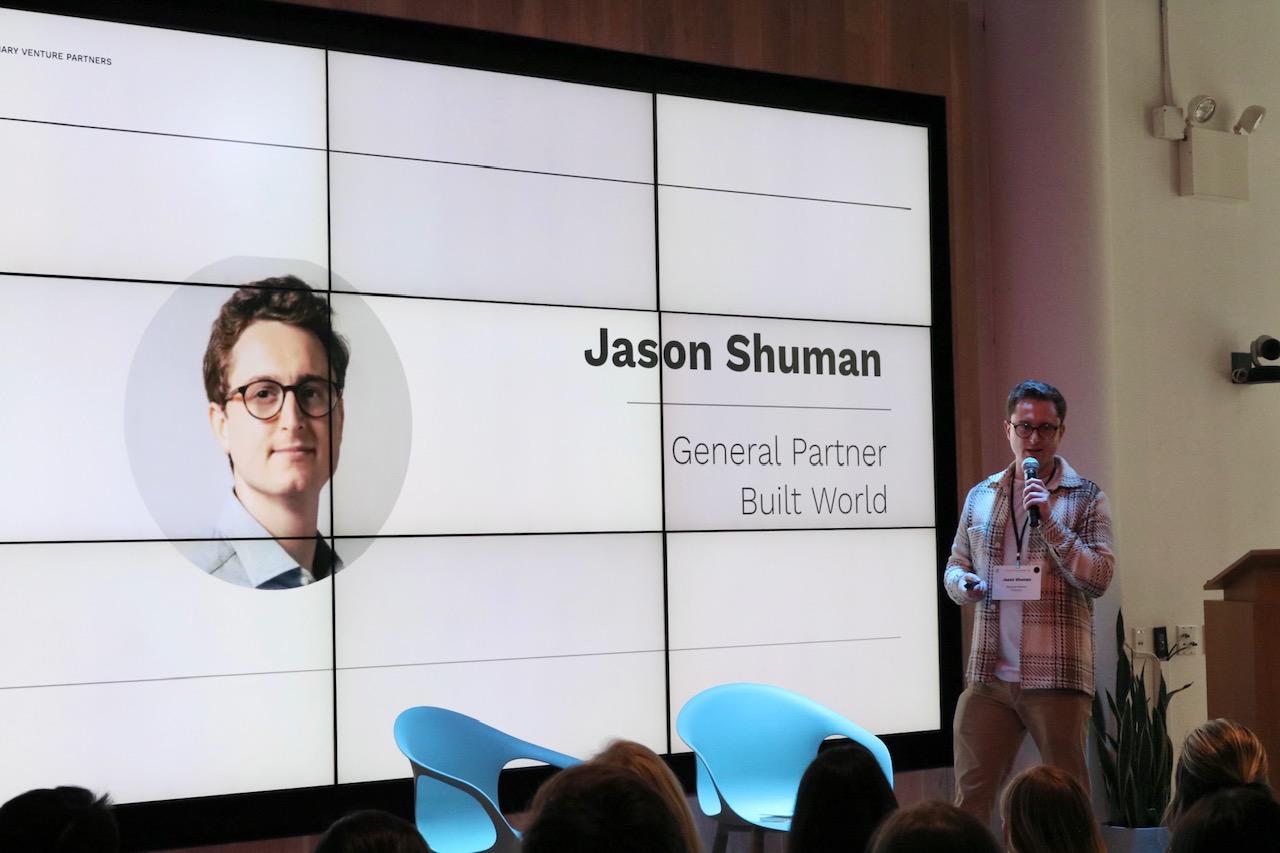
Jason Shuman on the Built World
Primary’s General Partner Jason Shuman specializes in the Built World, SMB SaaS and consumer investing. Despite being bullish on the Built World, Jason acknowledges its challenges by stating, "I'm also going to be incredibly honest with you. It is very, very hard." He adds, "It's hard to change the way people do business day-to-day when they've been making tons of money hand over fist for years.”
The average age of commercial buildings in the United States is 50+ years, and the heterogeneity of buildings and businesses within the sector adds to its complexity. However, Jason sees current technological advancements, labor shortages, government investments, and changes in monetary policy as macro shifts creating exciting opportunities within the Built World.
He’s especially focused on how to “get data into the hands of [people in this industry] and ultimately automate a lot of their systems and processes". He advises operators to leverage well established software and retail players for distribution (e.g. Procore, ServiceTitan, BuildOps, Home Depot, Lowes, etc.), along with the importance of interoperability and data integration in software solutions within the Built World.
For his Fireside Chat, Jason brought Liz Young, Founder of Realm, a single destination for homeowners, to the stage. Liz shares that we “hear so much about optimizing [your GTM strategy] in the early days”, but instead encourages the audience “to take big, giant swings that can drive step-change growth in your business."
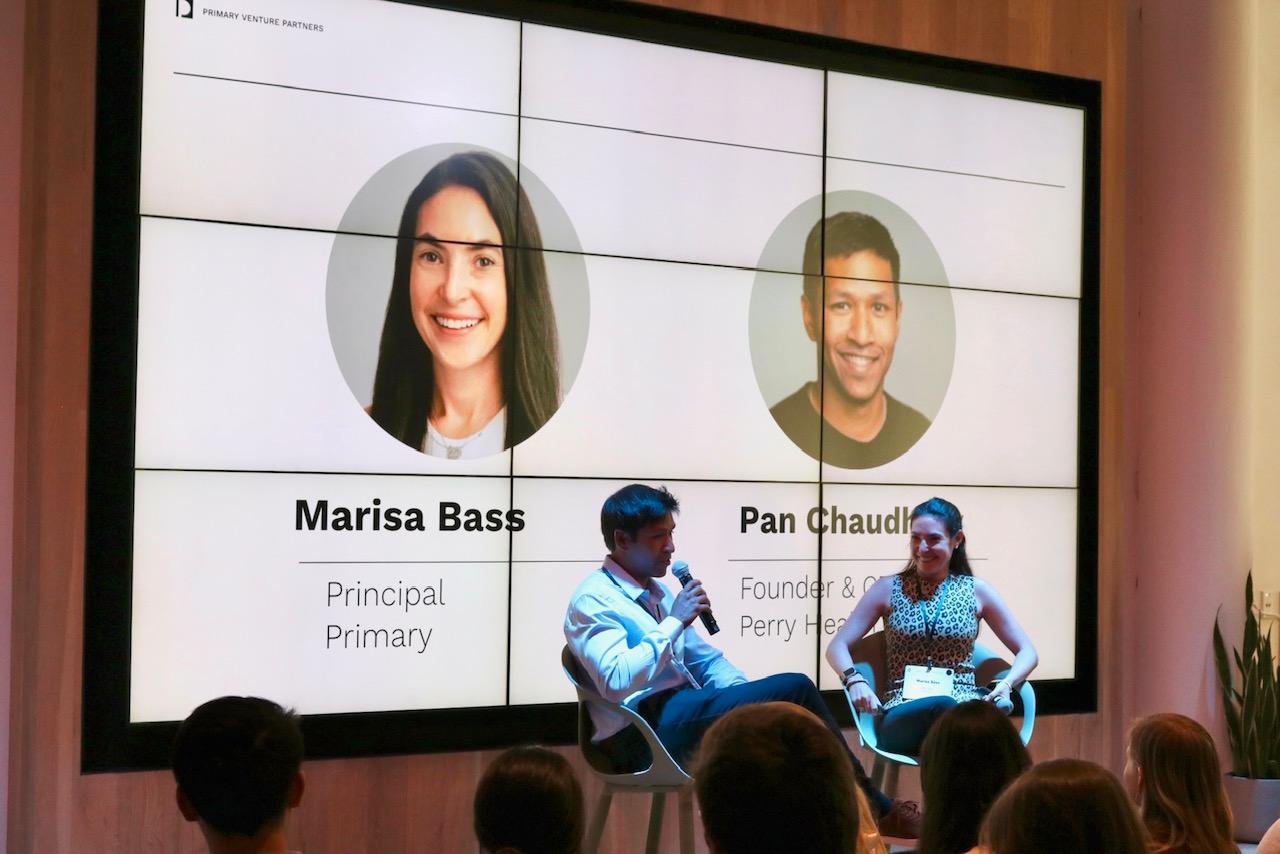
Marisa Bass on Healthcare
Marisa Bass, a Principal at Primary and former healthcare operator, shares her perspective on healthcare funding trends. She highlights the growing interest and traction of value-based care and emergence of various point solutions in healthcare, noting that “platforms intelligently aggregating these solutions and facilitating their implementation and integration will thrive.”
She points out, “Given the environment, it’s more important than ever to optimize your customer discovery and sales process.” Many companies are currently facing challenges shifting from direct-to-consumer (DTC) to business-to-business (B2B). While starting in the DTC space provides “speed to market and early product iteration, eventually, many companies shift to build Enterprise GTM.” Proving enterprise value here is key.
Pan Chaudhury, Founder and CEO of Perry Health, joined Marisa to talk about his experience of communicating value propositions, claiming that he “developed five or six value propositions to choose from depending on who [they were] presenting to and the type of system.”
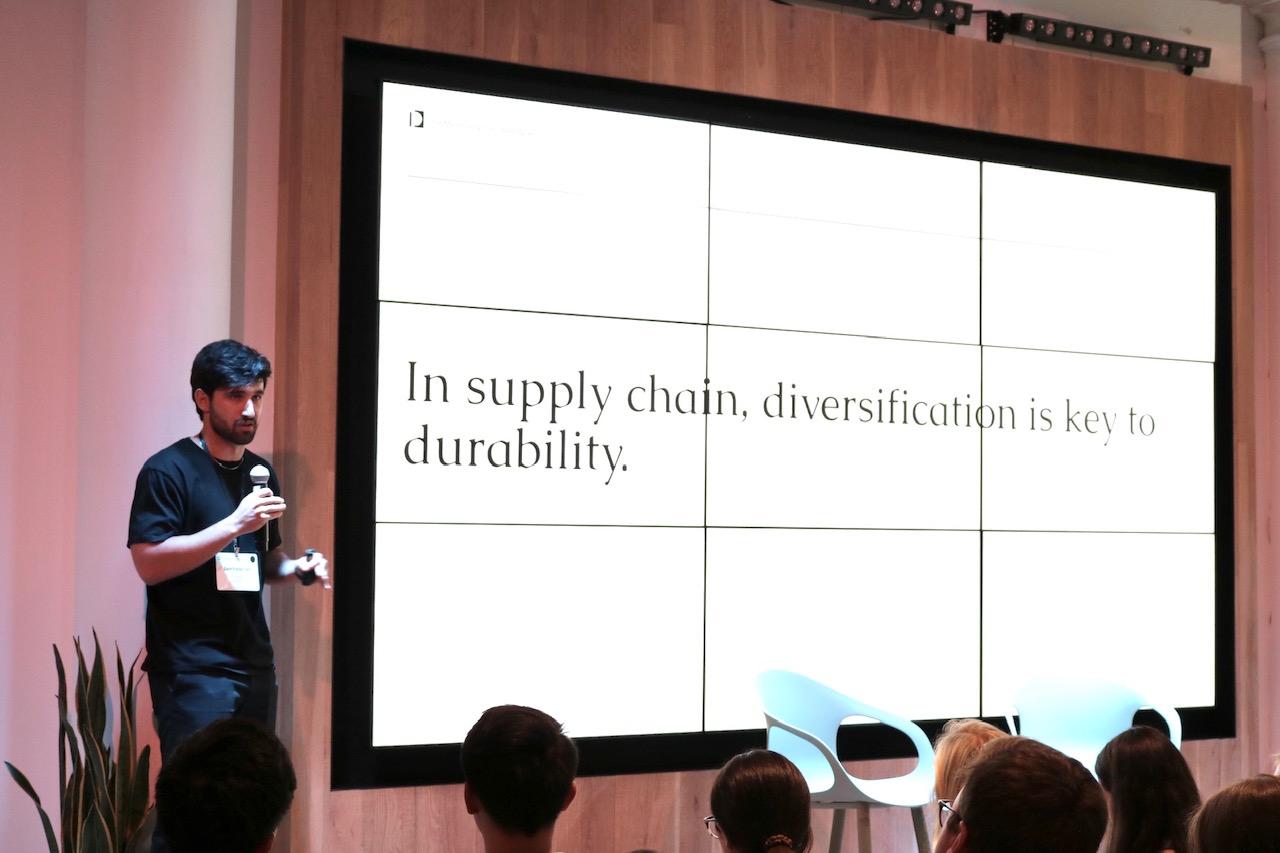
Zach Fredericks on Supply Chain
Zach Fredericks, a Principal at Primary, focuses primarily on B2B, application software, and marketplaces. He kicks off by comparing today’s Supply Chain market with Fintech in 2010, where “playbooks from FinTech will dominate the next decade of Supply Chain innovations.” Specifically, he calls out that due to recent supply chain shocks, Primary is specifically looking at solutions that encourage “collaboration and diversification in the supply chain as its key to durability.”
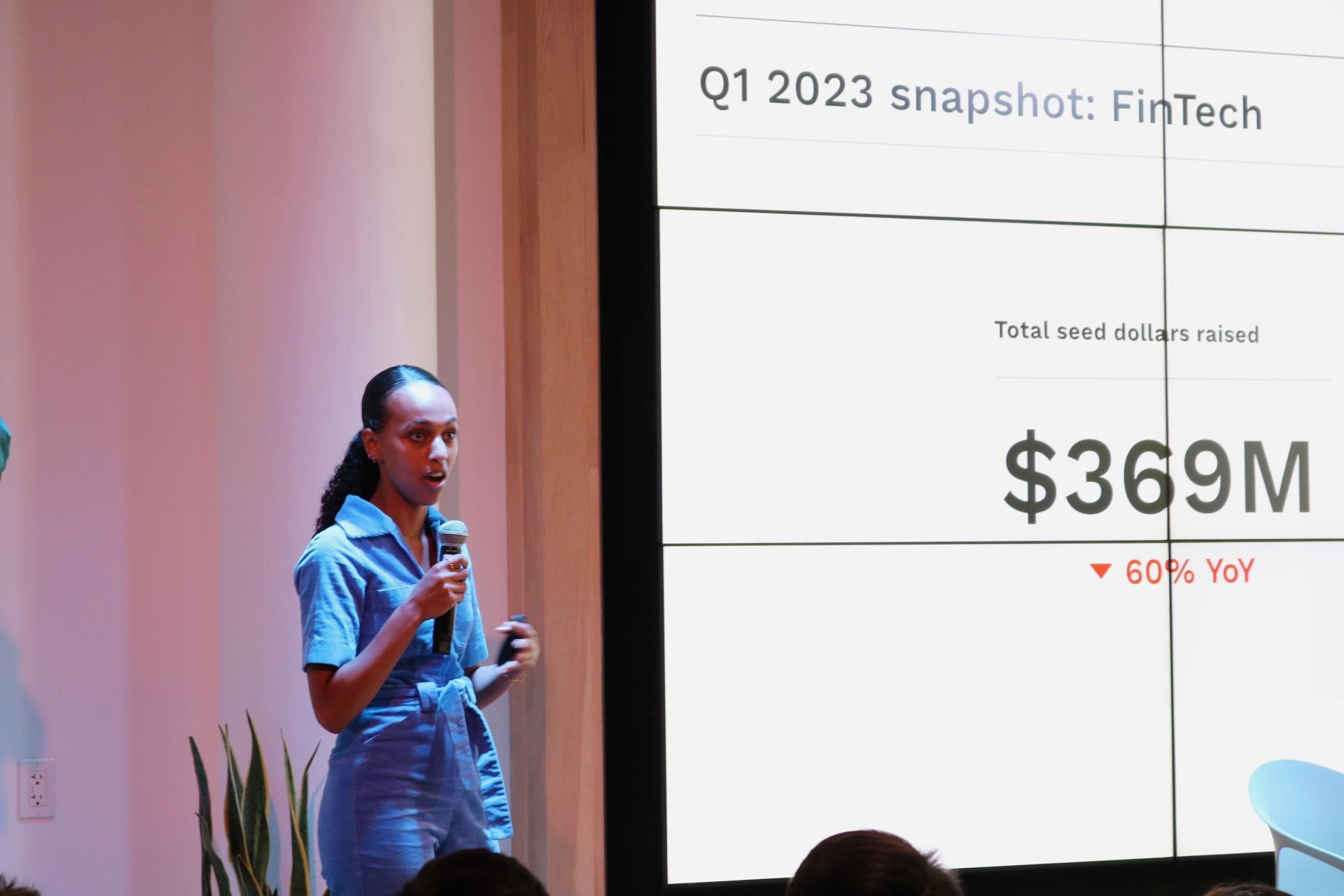
Abir Liben on FinTech
Abir Liben, a Principal at Primary, acknowledges how the current economic climate has impacted FinTech investments but notes that, “downturns create opportunities to find an edge that strengthen financial operations and infrastructure.”
Shanthi Shanmugam, Founder & CEO of Casap and former PM at Robinhood, joined Abir onstage to talk about customer support and the importance of “being there for customers when they least expect you to.” She stressed that FinTech startups can at times hyper focus on product while neglecting the overall customer experience and the role it plays in growth and retention.
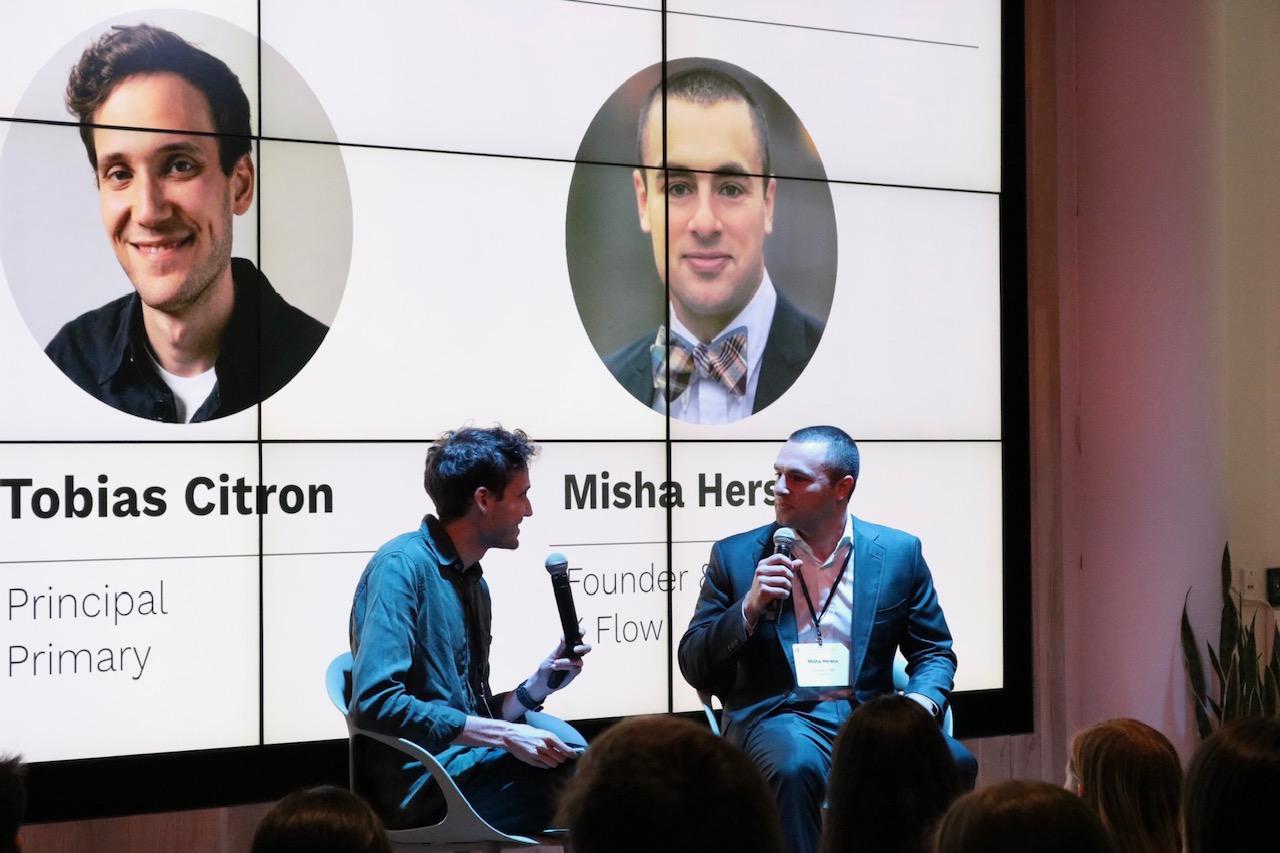
Tobias Citron on Generative AI
Tobias Citron, Principal at Primary, invests in Infrastructure, with a strong focus on Generative AI, a space with skyrocketing investments and explosion of startups, an exception in today’s bear market.
Tobias implored the audience to think about “how to incorporate AI into businesses to make it both more productive internally and better serve customers.” Especially since we’re at a “crucible moment–companies will be defined by how they leverage AI.”
Misha Herscu, Founder and CEO of K Flow, joined Tobias to share how their modular platform allows customers to quickly change and implement new technologies without relying solely on in-house engineers or alternative solutions.
Primary has always been a champion of Operators, especially through our in-house Operator staff that outnumbers Investors 2:1 and our Mastermind Network, where we provide over 1,000 of them with best-in-class programming. If you’re an Operator and want to get invited to our upcoming events like this one, apply to join our Mastermind Network!